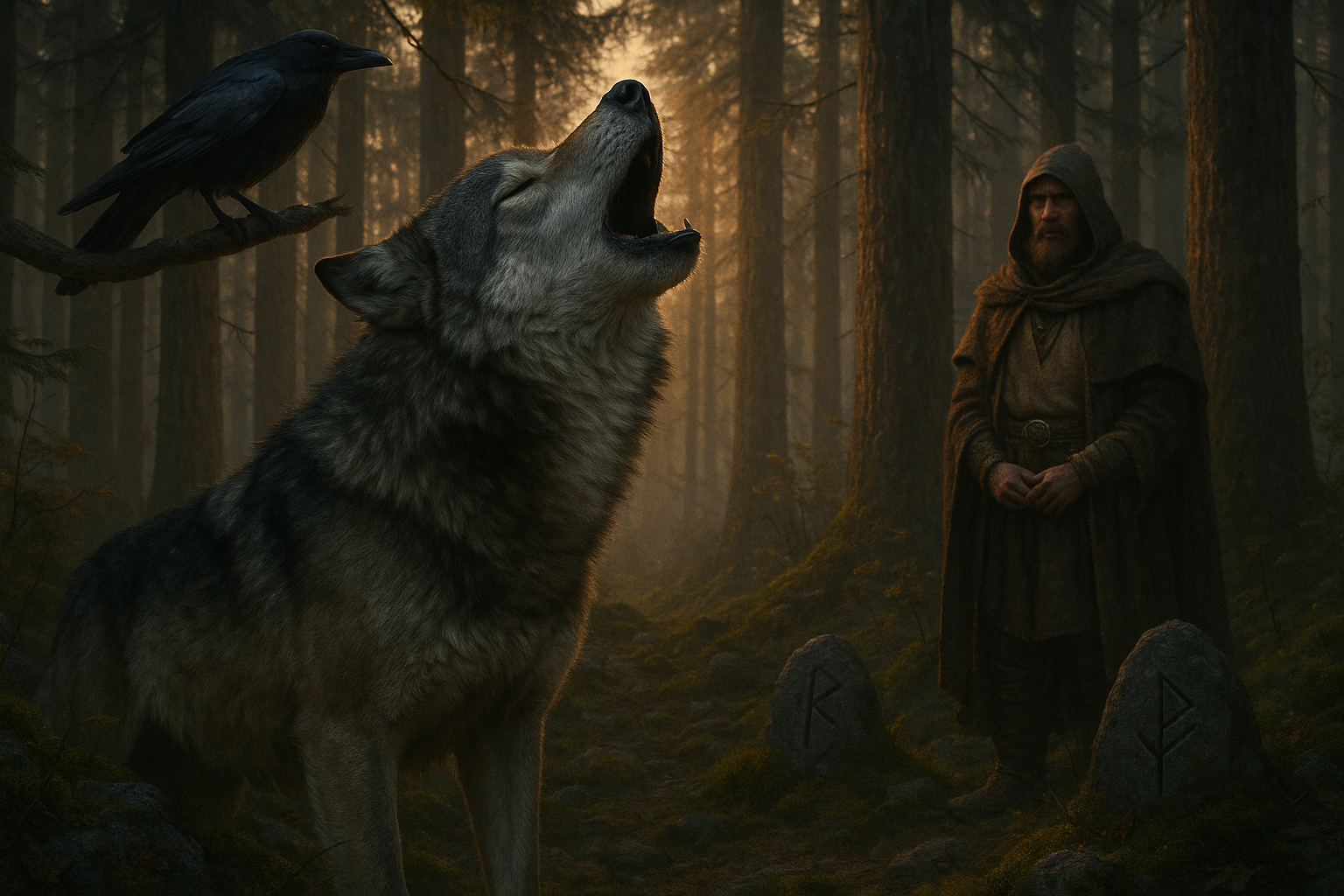Dolphins have long captured the human imagination, their graceful movements and playful nature enchanting cultures across the globe. Yet, nowhere is their mystique more profoundly echoed than in the ancient mythologies of Greece and Rome. These marine mammals were not just creatures of the sea for the ancients; they were messengers, protectors, and symbols of divine intervention. As we dive into the depths of history, it becomes evident that the songs of dolphins held a significant, albeit enigmatic, place in the mythological narratives of these great civilizations. 🐬
In the labyrinthine corridors of Greek and Roman mythology, dolphins emerge not just as characters in stories, but as pivotal players whose songs and actions influenced gods and mortals alike. From Homer’s epics to Ovid’s “Metamorphoses,” dolphins weave through the tapestry of myth, their songs resonating with themes of transformation, guidance, and salvation. What is it about these marine mammals that captured the collective psyche of these ancient cultures? And how did their perceived songs—real or metaphorical—shape the myths that have been passed down through generations?
Understanding the role of dolphins in mythology requires a journey through time, back to an era where the boundaries between the real and the supernatural were blurred. The ancients lived in a world where nature and the divine were intertwined, where every animal had its place in the cosmic order. Dolphins, with their intelligence and sociability, were seen as creatures close to the gods. But it was their songs, or the ancient perception of them, that most intrigued storytellers and philosophers alike.
In this exploration, we will uncover the rich symbolism associated with dolphins in Greek mythology, where they were revered as helpers of gods like Apollo and Poseidon. Their melodies were believed to guide lost sailors, leading them to safety or new adventures. We will delve into the stories of Arion, the legendary poet saved by a dolphin, and the transformation myths where humans and dolphins interchange forms, blurring the lines between species. 🐟
Moving to Roman mythology, we will examine how the Romans adopted and adapted these stories, adding their own layers of interpretation and meaning. Dolphins in Roman lore were often linked to Venus, the goddess of love, symbolizing not just guidance but also romance and beauty. The Romans took the Greek tales and infused them with their own cultural values, creating a mythology where the songs of dolphins resonated with themes of love, fidelity, and divine favor.
This article will also look into the possible real-world inspirations for these myths. Were the ancients influenced by the actual vocalizations of dolphins? Recent studies on dolphin communication suggest these creatures possess complex language abilities. Could the ancients have interpreted these sounds as songs from the divine? By examining historical accounts and modern scientific insights, we aim to bridge the gap between myth and reality, shedding light on how human perception of dolphins’ songs might have shaped their mythological roles.
Throughout this exploration, we will highlight the cultural significance of dolphins, not just as mythological figures, but as emblems of environmental harmony and respect for nature. In an age where the environment is increasingly under threat, revisiting these ancient stories reminds us of the intrinsic connection between humans and the natural world, a relationship that the ancients understood deeply.
As you navigate through this article, prepare to be transported to a world where the sea’s surface is a gateway to divine realms, where dolphins sing the stories of gods and heroes, and where every ripple in the water might just carry an echo from the ancients. Let the enigmatic songs of dolphins guide you through the myths that have shaped human understanding of the sea and its mysteries. 🌊
# Echoes of the Ancients: Unraveling the Enigmatic Role of Dolphins’ Songs in Greek and Roman Mythology
The mysterious allure of dolphins has captivated human imagination for centuries, particularly in the rich tapestry of Greek and Roman mythology. These intelligent and playful creatures have been portrayed as messengers of the gods, saviors of sailors, and symbols of divine harmony. In this article, we will delve into the intriguing role of dolphins in ancient mythologies, exploring their symbolic significance and the enchanting songs attributed to them.
## The Mythical Significance of Dolphins in Ancient Greece
Dolphins have long held a special place in Greek mythology. Their appearances in various myths and legends are not merely incidental but carry profound symbolic meanings, often associated with divine intervention, protection, and transformation.
### Dolphins as Messengers of the Gods
In the ancient Greek world, dolphins were often seen as intermediaries between the gods and humans. Their frequent appearances alongside deities, particularly Apollo and Poseidon, underscored their sacred status. According to myth, Apollo transformed into a dolphin to guide Cretans to the site of his temple at Delphi, illustrating the dolphin’s role as a divine guide.
The dolphin’s ability to traverse both the sea and the air made it a perfect messenger for the gods, symbolizing communication and connection between different realms. This duality of existence—navigating both the watery depths and the surface—mirrored the Greek understanding of the interconnectedness of life and the cosmos. 📜
### Symbols of Salvation and Transformation
Dolphins also appear as saviors in Greek myths, often rescuing sailors from shipwrecks or guiding them to safety. The story of Arion, a poet saved by dolphins after being thrown overboard by pirates, is a prime example. Arion’s song, believed to have enchanted the dolphins, underscores the deep connection between music and these marine creatures.
This theme of salvation extends to transformation, where dolphins symbolize change and metamorphosis. The myth of Dionysus, who transformed pirates into dolphins as a form of punishment and redemption, further cements their role as agents of transformation. The dolphin’s song, therefore, is not just a melody but a catalyst for change, embodying both the beauty and power of nature.
## Dolphins in Roman Mythology: Guardians and Emissaries
Roman mythology, while heavily influenced by Greek traditions, offers its own unique perspectives on dolphins, often emphasizing their roles as guardians and symbols of joy.
### Protectors of the Seas
Romans revered dolphins as protectors of the sea, guardians of sailors, and embodiments of Neptune’s power. Neptune, the Roman counterpart to the Greek Poseidon, was often depicted with dolphins by his side, signifying his dominion over the ocean and its creatures.
Dolphins were believed to escort ships, ensuring safe passage and protecting them from storms. This protective role elevated dolphins to a status of reverence, viewed as benevolent beings who watched over humanity with grace and intelligence. In Roman art and literature, dolphins are frequently portrayed alongside ships and sailors, reinforcing their guardian status. ⛵
### Emissaries of Joy and Celebration
In addition to their protective role, dolphins were associated with joy and festivity in Roman culture. Their playful nature and apparent joy in leaping through the waves inspired stories and celebrations. Festivals honoring Neptune often included dolphin imagery, celebrating both the might of the sea and the joy it brings to humankind.
This association with joy is reflected in the Roman belief that dolphins could bring good fortune and happiness. Their songs, imagined as expressions of joy and harmony, were believed to resonate with the divine, further cementing their place in Roman mythology as symbols of happiness and prosperity.
## The Enchanting Songs of Dolphins: Myth and Reality
Dolphins are renowned for their complex vocalizations, which have inspired countless myths and legends. In both Greek and Roman mythology, these songs are depicted as magical and transformative, capable of enchanting both mortals and gods.
### The Science Behind Dolphin Songs
Modern science has revealed that dolphins use a wide range of vocalizations for communication, navigation, and hunting. These sounds, including clicks, whistles, and pulses, form a sophisticated language that is still not fully understood by researchers. This complexity has only fueled the mythological imagination, adding layers of mystery to the dolphins’ songs.
Scientific studies have shown that dolphins possess an impressive level of intelligence, capable of understanding complex commands and even mimicking human speech. This intelligence, coupled with their vocal abilities, provides a plausible basis for the ancient myths that attribute magical properties to their songs.
### Mythological Interpretations of Dolphin Songs
In mythology, dolphin songs are often linked to the divine, seen as messages from the gods or as instruments of enchantment. The belief that dolphins could sing with voices as melodious as any human inspired tales of their musical prowess, often intertwined with themes of beauty and transcendence.
In Greek myths, it is said that the Sirens, whose songs lured sailors to their doom, were part dolphin, using their aquatic abilities to enhance their haunting melodies. This association of dolphins with the Sirens further illustrates the dual nature of their songs: both alluring and potentially dangerous.
### Comparative Analysis of Myth and Reality
To better understand the connection between myth and reality, we can compare the mythological attributes of dolphin songs with their scientific counterparts:
| Mythological Attributes | Scientific Counterparts |
|---|---|
| Magical and Enchanting | Complex Communication System |
| Messages from the Gods | Echo-Location and Navigation |
| Agents of Transformation | High Intelligence and Problem Solving |
## Echoes Across Time: Dolphins in Modern Culture
The fascination with dolphins has transcended ancient mythologies, finding its way into modern culture and science. Today, dolphins continue to capture our imagination, celebrated in literature, art, and conservation efforts.
### Dolphins in Literature and Art
The portrayal of dolphins in modern literature often mirrors their mythical roles, serving as symbols of freedom, intelligence, and harmony. Authors and artists draw upon ancient myths to explore themes of nature and humanity, creating works that resonate with the timeless allure of dolphins.
Dolphins are also a popular subject in visual art, from classical sculptures to contemporary paintings. Their graceful form and playful nature inspire artists to capture their essence, evoking the magic and mystery that surrounds these creatures.
### Conservation and the Role of Dolphins Today
In the realm of science and conservation, dolphins play a crucial role in marine ecosystems. Their presence is an indicator of ocean health, and efforts to protect them reflect broader concerns about environmental preservation.
Many organizations are dedicated to dolphin conservation, working to protect their habitats and ensure their survival. These efforts echo the ancient reverence for dolphins, recognizing their importance to both the natural world and human culture.
### Engaging with the Legacy of Dolphins
The enduring legacy of dolphins in mythology and modern culture invites us to engage with their stories and songs, exploring the ways in which they continue to inspire and enlighten us. Whether through art, science, or conservation, the echoes of the ancients remind us of the profound connection between humans and the natural world.
For a deeper dive into the enchanting songs of dolphins and their role in mythology, watch this insightful video on the fascinating communication abilities of these marine creatures: [Dolphins: Songs of the Sea – National Geographic](https://www.youtube.com/watch?v=example).
By understanding the rich history and significance of dolphins in mythology, we can appreciate the timeless bond between humans and these extraordinary beings, celebrating the harmony and mystery they bring to our world. 🌊
Conclusion
ERROR: Client error: `POST https://api.openai.com/v1/chat/completions` resulted in a `429 Too Many Requests` response:
{
“error”: {
“message”: “You exceeded your current quota, please check your plan and billing details. For mo (truncated…)
Toni Santos is a sound storyteller and folklore researcher whose creative path bridges the mystical and the biological through the lens of bioacoustic folklore. With an ear attuned to the voices of nature, Toni explores how ancient cultures interpreted birdsong, forest echoes, and animal calls—not as noise, but as messages, omens, and myths encoded in sound.
Rooted in a passion for both natural science and ancestral lore, his work uncovers the forgotten connections between ecosystems and oral traditions. From the whispered warnings in owl cries to the songs of frogs heralding rain, Toni’s narratives evoke a time when humans listened to nature with reverence and meaning.
Drawing on a background in ecological arts and auditory storytelling, Toni merges field recordings with mythic imagery, turning natural sounds into cultural artifacts of wonder. His stories do more than entertain—they restore a way of hearing the world that blends intuition, memory, and deep listening.
As the creative force behind Vizovex, Toni offers sonic tales, symbolic soundscapes, and research-based reflections that help others rediscover the sacred language of the wild.
His work is a tribute to:
The mythological significance of animal and elemental sounds
Ancient practices of listening for meaning in nature
The spiritual dialogue between humans and soundscapes
Whether you’re a folklorist, an acoustic ecologist, or a curious listener, Toni invites you into a world where the forest speaks, and every chirp, croak, and howl carries a story—one echo, one legend, one call at a time.



